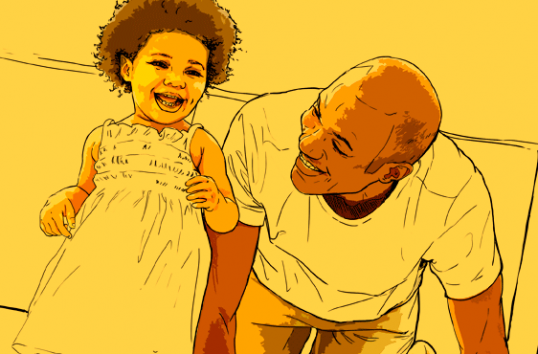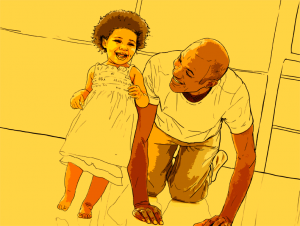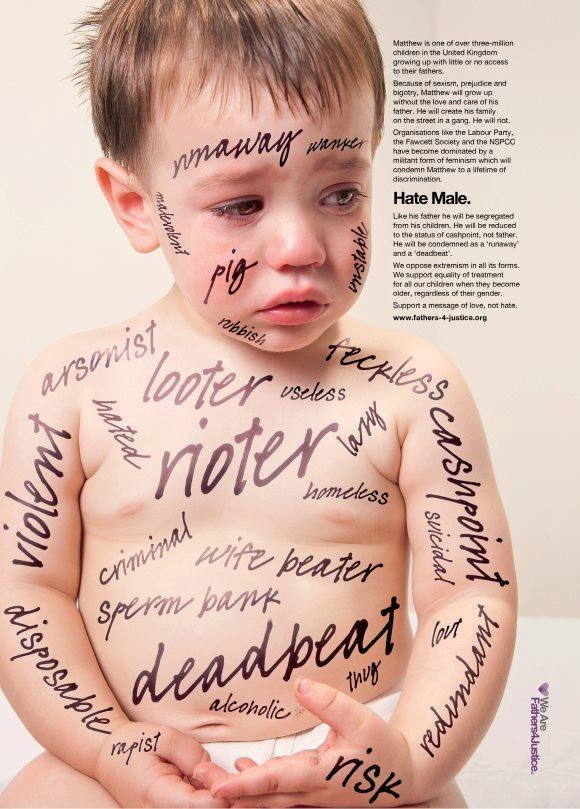Originally posted on June 12, 2013 on A Voice for Men

Father’s Day cards for mothers. Yes you read this correctly. At first I thought it was a joke, but I learned that it was all too real.
This line of cards was inducted into the Greeting Card Hall-of-Shame by Hallmark in 2011. Their target audience is unmarried black women and the line is sold through their Mahogany brand. Unfortunately, it appears that their Father’s Day cards for single mothers have turned out to be wildly successful. I feel this is a clear example of corporations endorsing black dysfunction.

When I heard about these cards, I was baffled by the fact that they would even introduce this incredibly foolish and ridiculously offensive idea. It appears they are either geniuses or they are capitalizing from one of our greatest social ills.
Maybe I should be on the creative team at Hallmark. I have a great new idea for them; why not create a line of cards specifically for single fathers celebrating their accomplishments on Mother’s Day. Oh wait, Hallmark beat me to it last month. Not a line of cards for single fathers, though, just cards for anyone who is “like a mother.” Talk about gender bending.
Arguments have been made in support of Father’s Day cards for mothers. Some feel it is needed because in the black community single mothers are “both the mommy and the daddy.”
The problem I have with that line of thinking, is that it contributes to the devaluing of the role of the father within the family. The perpetual disdain for fathers, and the continuous reinforcement of this poisonous mindset exacerbates the epidemic of fatherlessness. I think a better choice would be a show of appreciation for a kids next closest positive male role model—an uncle, coach, pastor, or neighbor. This would help restore the value of men in the black community and begin building a stronger community for future generations.
Tell me, where did the idea of mothers and fathers being interchangeable come from? A female parent is a mother. A male parent is a father. The definitions are clear. A woman can never be a father and a man can never be a mother. Both the mother and father have unique and invaluable roles in raising children.
At what point did we forget what the difference was between fathers and mothers? Did the push towards total equality between the sexes blur the lines of the natural roles we play as male and female? If so, it’s time to set the record straight and make sure the distinctions are clear.
Here is a dose of reality. According to 2011 U.S. Census Bureau data, over 24 million children are being raised without fathers. That is 1 out of every 3 (33%) children in America. Nearly 2 in 3 (64%) African American children live in father-absent homes. One in three (34%) Hispanic children, and 1 in 4 (25%) white children live in father-absent homes. The most revealing statistic is that in 1960, only 11% of children lived in father-absent homes.
Recent studies have shown that children who live absent their biological fathers are, on average, at least two to three times more likely to be poor, be connected to the criminal justice system, live in poverty, fail in school, use drugs, experience educational, health, emotional and behavioral problems, be victims of child abuse, and to engage in more criminal behavior than their peers who live with their married, biological (or adoptive) parents.
These problems are visible and widespread in the African-American community. Just take a look at the death count in a city like Chicago. At the time of the writing of this post, the Associated Press reported that at least six people have been killed in weekend violence and at least another 11 wounded.
Maybe it is our culture’s move towards “gender equality.” Maybe some people really believe we are all the same. It is clear to me that there is a need for a re-education of the general public. The facts are out for everyone to see. Some may choose to ignore them, but the differences between mothers and fathers are as clear as night and day.
Mothers tend to interact in more caregiving ways, while fathers tend to be involved in rough play and more physical interactions. Mothers tend to be more repetitive and explain what things are to her child in simpler terms. Fathers speak to their children using more adult language, expanding their vocabulary and understanding. Fathers also challenge their children more than mothers. Fathers enforce rules more sternly, which teach children the consequences of right and wrong. Mothers tend toward empathy, which provides a sense of optimism. These differences create a healthy, proper balance with raising well-adjusted children.
Times may have changed with regard to the economic contributions in the family within our culture, but the roles of mother and father have not. We are naturally wired for parenthood to bring different and equally vital qualities to child rearing.

If you think these cards are meaningless and don’t really matter, you are fooling yourself. They may be a small segment of the total share of greeting card revenue but they are a symptom of a larger problem. The more reinforcement of disdain for family and fatherhood and encouragement or approval of the choice of single motherhood that come from major corporations like Hallmark, the bigger the problem of widespread fatherlessness gets. This problem isn’t going to be kept in the ghetto. It’s going to affect us all sooner or later.
It’s no badge of honor to be a single mother. Children fare better with both their biological mother and father. A father is not simply a woman who has no man around. It is time to take companies to task that are complicit in the epidemic of widespread fatherlessness.




